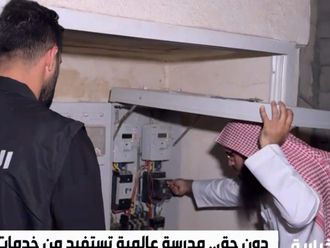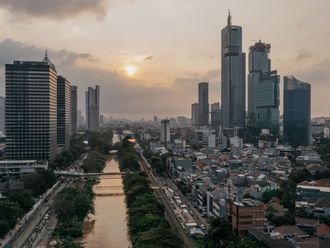Riyadh: A court in Saudi Arabia has sentenced 18 more people on terrorism charges, wrapping up a week of verdicts on nearly every person in an alleged 50-member cell charged with launching attacks aimed at toppling the monarchy around a decade ago.
In recent months Saudi authorities have tightened laws to ban citizens from fighting in foreign conflicts, fearing a repeat of the 2003-2006 violence, when Saudis and others who had been radicalised in battlefields abroad carried out a series of deadly attacks in the kingdom.
The 18 were found guilty of financing terrorism, collecting information about compounds where foreigners reside, providing hideouts for fugitives and possessing unlicensed weapons, the official Saudi Press Agency reported late on Wednesday.
The men, whose nationalities were not disclosed, were given sentences ranging from 10 months to 25 years behind bars.
Earlier this week, the same court in Riyadh sentenced 31 other people for alleged involvement in the cell and their role in deadly attacks that took place over the course of several years starting in 2003.
The first verdicts were handed down on Monday against 14 men, reportedly linked to the 2004 kidnapping and beheading of Paul Marshall Johnson, a 49-year-old American from New Jersey who had worked in the kingdom for more than a decade. Johnson was working on Apache attack helicopter systems for Lockheed Martin when he was abducted and killed.
The 14 were also charged with planning attacks on the US and British embassies. One of the men was sentenced to death.
The second verdict was issued on Tuesday against 17 men, two of whom were sentenced to death, on various charges including murder, firing at security forces and plotting to assassinate top officials. They were also found guilty of assaults on residential compounds where foreigners live in Riyadh and the Eastern Province
Some defendants were also accused of plotting to assassinate senior government officials and smuggling heavy weapons into the kingdom from Iraq. Others were charged with fighting in conflicts abroad, firing at Saudi security officers and disobeying King Abdullah Bin Abdul Aziz.
It was not clear if all 50 suspected cell members are in custody, or whether some were being tried in absentia. A senior government official contacted by The Associated Press this week declined to give further details.












